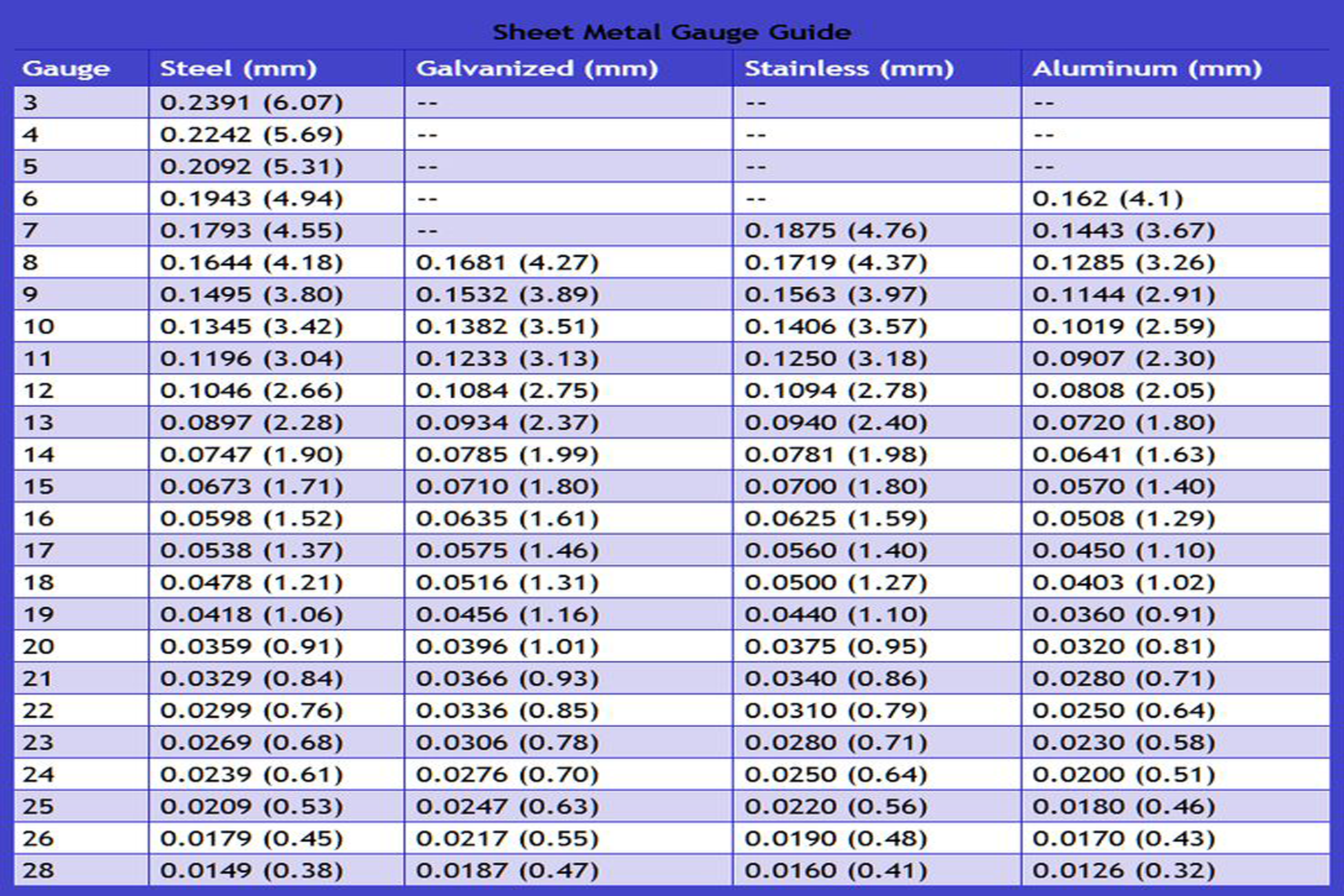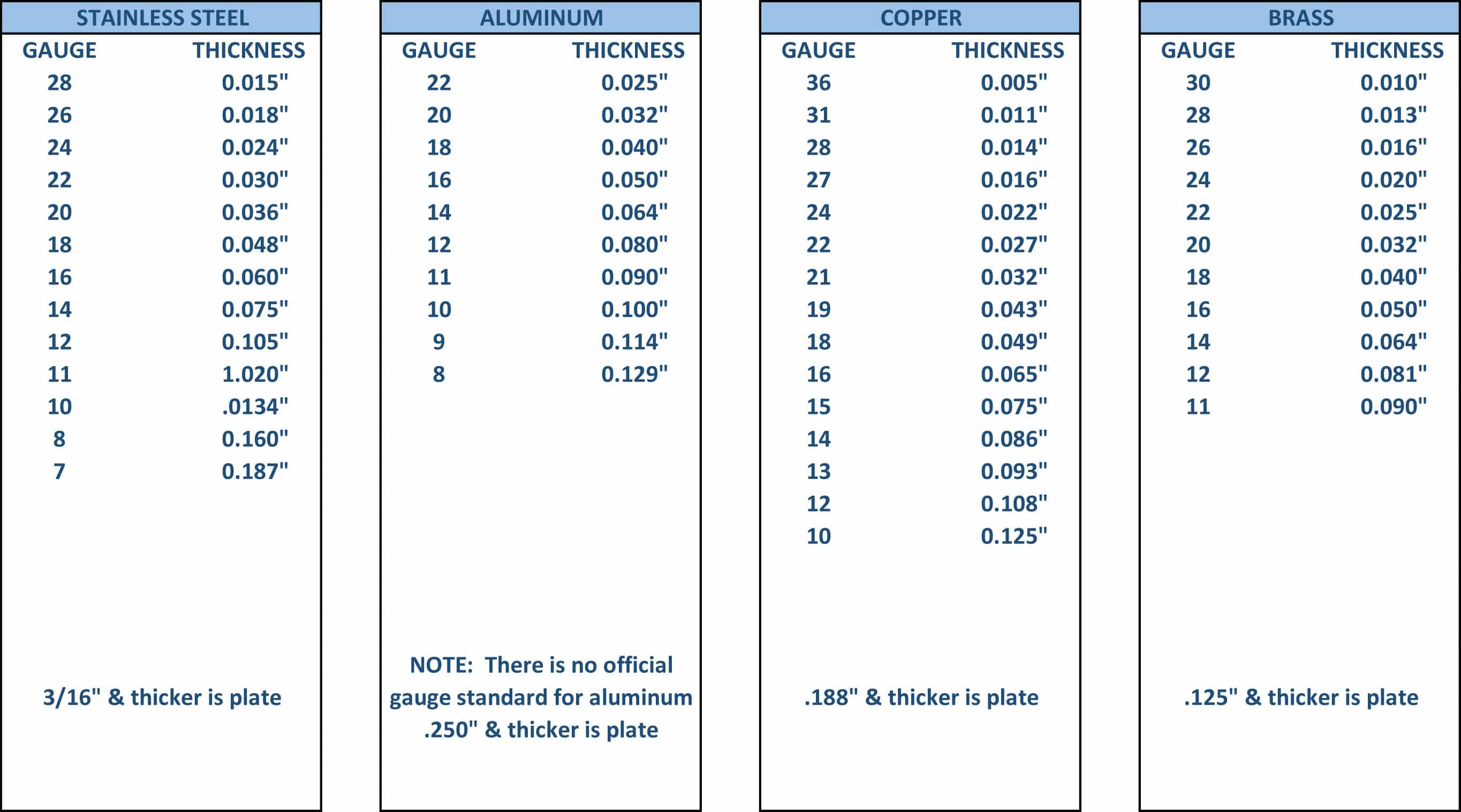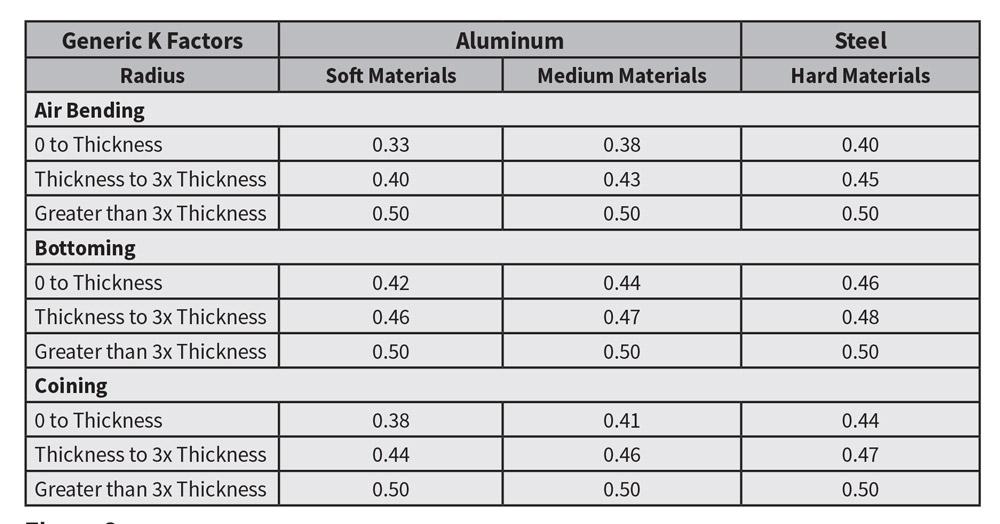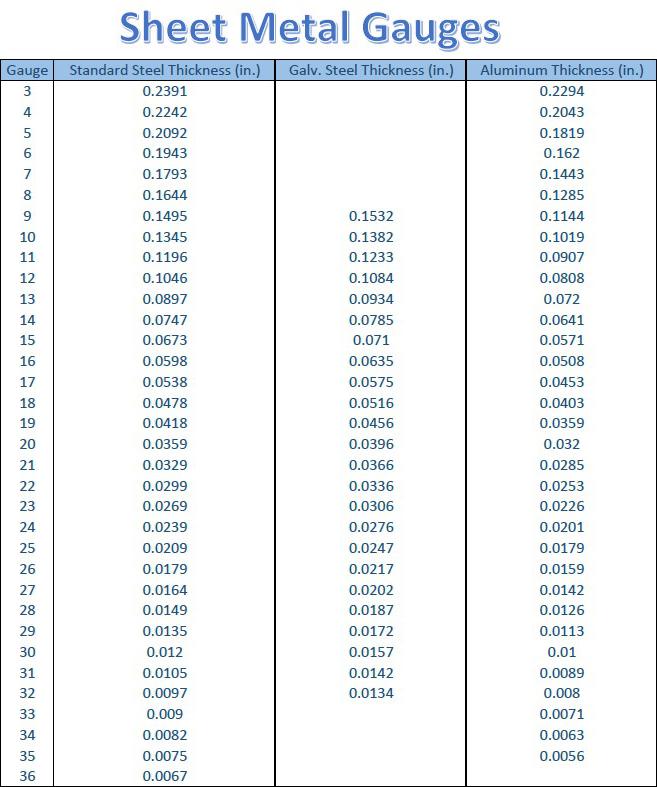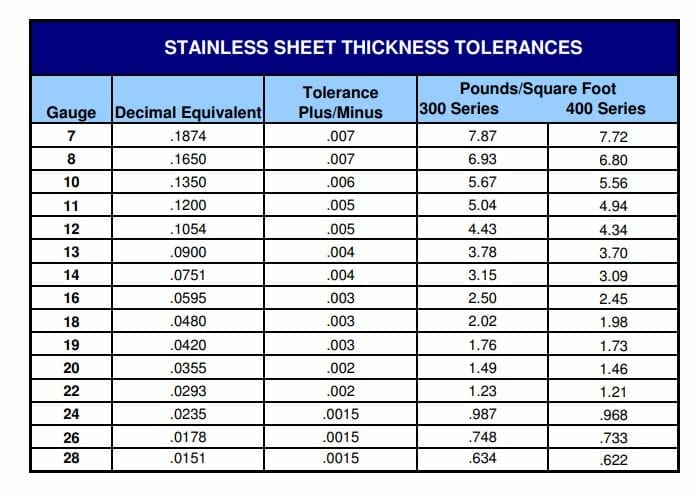Sheet Thickness - 52 rows find the standard thickness of different materials in sheet metal by gauge number. Compare steel, aluminum, and galvanized steel. 38 rows the chart below can be used to determine the equivalent sheet thickness, in inches or millimeters, for a gauge number from. Metals gauges are standard numbers developed by measuring the thickness of sheet metal in relation to its weight per square. Selecting the appropriate sheet metal thickness is essential for balancing strength, flexibility, and weight.
38 rows the chart below can be used to determine the equivalent sheet thickness, in inches or millimeters, for a gauge number from. 52 rows find the standard thickness of different materials in sheet metal by gauge number. Metals gauges are standard numbers developed by measuring the thickness of sheet metal in relation to its weight per square. Selecting the appropriate sheet metal thickness is essential for balancing strength, flexibility, and weight. Compare steel, aluminum, and galvanized steel.
Metals gauges are standard numbers developed by measuring the thickness of sheet metal in relation to its weight per square. Compare steel, aluminum, and galvanized steel. 52 rows find the standard thickness of different materials in sheet metal by gauge number. 38 rows the chart below can be used to determine the equivalent sheet thickness, in inches or millimeters, for a gauge number from. Selecting the appropriate sheet metal thickness is essential for balancing strength, flexibility, and weight.
Metal Sheet Thickness Chart
Compare steel, aluminum, and galvanized steel. Metals gauges are standard numbers developed by measuring the thickness of sheet metal in relation to its weight per square. Selecting the appropriate sheet metal thickness is essential for balancing strength, flexibility, and weight. 38 rows the chart below can be used to determine the equivalent sheet thickness, in inches or millimeters, for a.
Sheet Gauge Thickness And Weight Chart Steel Gauge Thickness
38 rows the chart below can be used to determine the equivalent sheet thickness, in inches or millimeters, for a gauge number from. Metals gauges are standard numbers developed by measuring the thickness of sheet metal in relation to its weight per square. 52 rows find the standard thickness of different materials in sheet metal by gauge number. Compare steel,.
Metal Sheet Thickness Gauge
Selecting the appropriate sheet metal thickness is essential for balancing strength, flexibility, and weight. 52 rows find the standard thickness of different materials in sheet metal by gauge number. Compare steel, aluminum, and galvanized steel. Metals gauges are standard numbers developed by measuring the thickness of sheet metal in relation to its weight per square. 38 rows the chart below.
Aluminium Sheet Thickness Chart In Mm
Compare steel, aluminum, and galvanized steel. 38 rows the chart below can be used to determine the equivalent sheet thickness, in inches or millimeters, for a gauge number from. Metals gauges are standard numbers developed by measuring the thickness of sheet metal in relation to its weight per square. 52 rows find the standard thickness of different materials in sheet.
Thickness Of 14 Gauge Steel In Inches
52 rows find the standard thickness of different materials in sheet metal by gauge number. Metals gauges are standard numbers developed by measuring the thickness of sheet metal in relation to its weight per square. 38 rows the chart below can be used to determine the equivalent sheet thickness, in inches or millimeters, for a gauge number from. Compare steel,.
Stainless Steel Sheets Sizes at Pablo Hoelscher blog
52 rows find the standard thickness of different materials in sheet metal by gauge number. Metals gauges are standard numbers developed by measuring the thickness of sheet metal in relation to its weight per square. Selecting the appropriate sheet metal thickness is essential for balancing strength, flexibility, and weight. 38 rows the chart below can be used to determine the.
Plexiglass Sheet Thickness Chart Ponasa
Selecting the appropriate sheet metal thickness is essential for balancing strength, flexibility, and weight. 38 rows the chart below can be used to determine the equivalent sheet thickness, in inches or millimeters, for a gauge number from. Metals gauges are standard numbers developed by measuring the thickness of sheet metal in relation to its weight per square. 52 rows find.
Sheet Metal Thickness Conversion Chart
38 rows the chart below can be used to determine the equivalent sheet thickness, in inches or millimeters, for a gauge number from. 52 rows find the standard thickness of different materials in sheet metal by gauge number. Compare steel, aluminum, and galvanized steel. Metals gauges are standard numbers developed by measuring the thickness of sheet metal in relation to.
Gauge To Thickness Conversion For Common Sheet Metals, 58 OFF
Selecting the appropriate sheet metal thickness is essential for balancing strength, flexibility, and weight. Compare steel, aluminum, and galvanized steel. Metals gauges are standard numbers developed by measuring the thickness of sheet metal in relation to its weight per square. 52 rows find the standard thickness of different materials in sheet metal by gauge number. 38 rows the chart below.
20 Gauge Brass Sheet Metal Thickness
Selecting the appropriate sheet metal thickness is essential for balancing strength, flexibility, and weight. Compare steel, aluminum, and galvanized steel. Metals gauges are standard numbers developed by measuring the thickness of sheet metal in relation to its weight per square. 52 rows find the standard thickness of different materials in sheet metal by gauge number. 38 rows the chart below.
38 Rows The Chart Below Can Be Used To Determine The Equivalent Sheet Thickness, In Inches Or Millimeters, For A Gauge Number From.
52 rows find the standard thickness of different materials in sheet metal by gauge number. Compare steel, aluminum, and galvanized steel. Selecting the appropriate sheet metal thickness is essential for balancing strength, flexibility, and weight. Metals gauges are standard numbers developed by measuring the thickness of sheet metal in relation to its weight per square.

